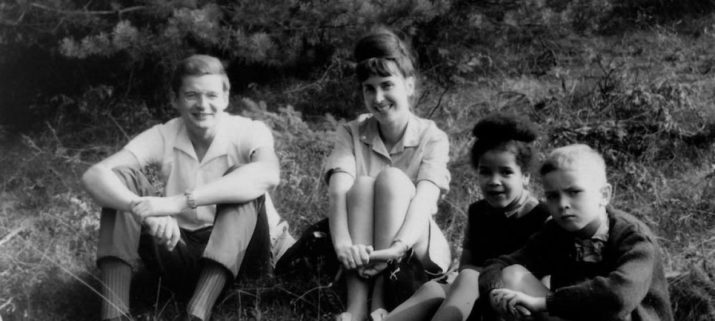directed by Ines Johnson-Spain, Germania 2019, 89’
Imagine that your parents are white but your skin colour is dark and they tell you that’s pure coincidence. This is what happened to a girl in East Berlin in the 1960s.
Years before, a group of African men came to study in a village nearby. Here the East German woman Sigrid falls in love with Lucien from Togo and gets pregnant. But she is already married to Armin.
The child is filmmaker Ines Johnson-Spain. Meeting her stepfather Armin and others from her childhood years, she tracks the astonishing strategies of denial her parents and the surroundings had developed.
In an intimate portrayal but also critical exploration she brings together painful and confusing childhood memories with matter-of-fact accounts that testify a culture of rejection and tight-lipped denial.
Yet, the movingly warm encounters with her Togolese family develop Becoming Black also into a reflection on themes such as identity, social norms and family ties, seen from a very personal perspective.
Watch the trailer
Documentary available online from Tuesday 27th to Thursday 29th October at festivalscope.com/
Available for free for up to 400 people
Live on Facebook: Thursday 29th October – 5.30 pm
with Angelica Pesarini (NYU Florence) and Igiaba Scego (writer)
“The Colour Lines.Identity, race and gender in post-colonial Italy.”
What does it mean to be Italian? Who is really Italian? In this talk Angelica Pesarini proposes to consider the historical and social implications that brought to the construction of an Italian modern identity, focalizing on the historical moments when the language of the “race” in relation to the idea of citizenship have appeared. The analysis of (post)colonial Italian stories and memories helps us to highlight the plasticity of the construction of national identities and to scratch static ideas about citizenship and Italianism.
Igiaba Scego, being a scholar and a writer, reflects about the presence of the topics of race and colonialism in the Italian literature, from books of the colonial times to those of Ennio Flaiano, written during the postwar period, but also to the modern examples like Francesca Melandri, Garane Garane and Gabriella Ghermandi. Her own works include serious reflections about the intricate connection between identity and race in contemporary Italy.
These contributions both underline the urgency to investigate the research and the collective thought about the inheritance of racial categories in the definition of the Italian identity.




